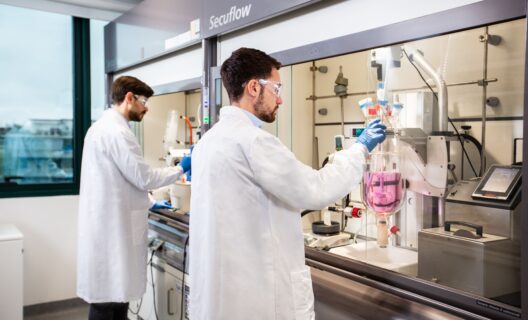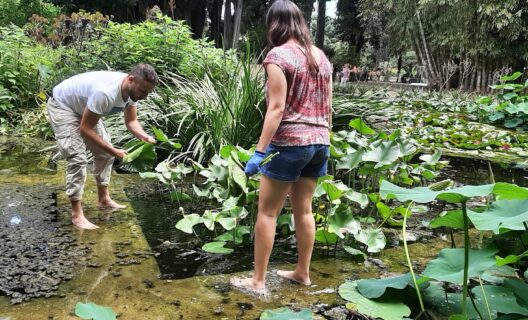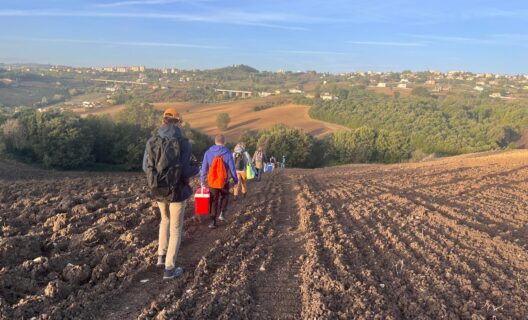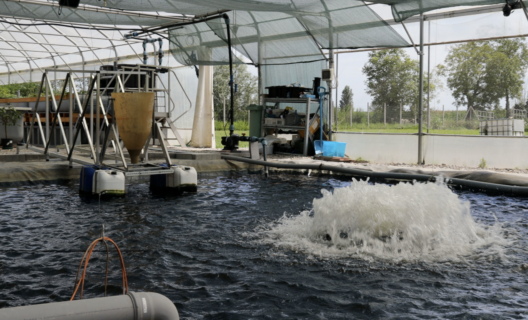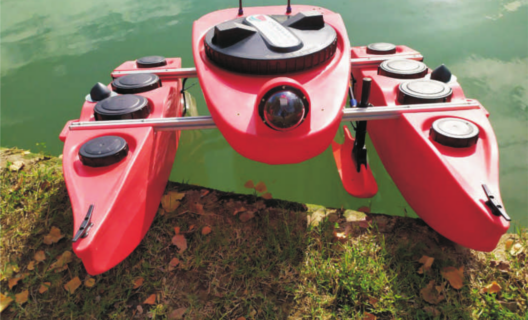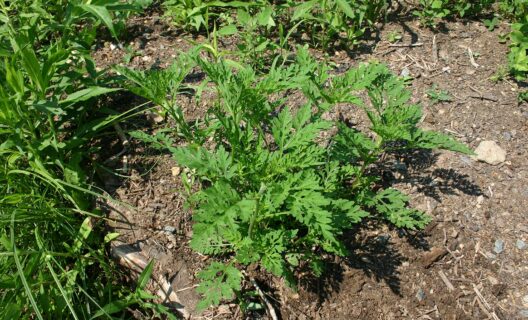

Reading time
0 min
A dialogue with Jacopo Orlando on agricultural strategies, research and projects with NBFC
Jacopo Orlando is an agronomist and agricultural economist. At Aboca he is in charge of institutional relations in agriculture and coordinates the Impact and Sustainability Office. His efforts are focusing on biodiversity, or the variety of life forms that populate an ecosystem, and how it can be integrated into on-farm practices to ensure health and well-being-partly through his collaboration with NBFC.

""
Aboca and NBFC, what is the relationship between them, and how did this collaboration come about?
Let me make a premise: Aboca was founded in 1978 with the goal of finding in nature-exclusively in nature-solutions for human health needs. This means that the entire process, from cultivation to the production of medical devices and dietary supplements, is 100 percent natural. We do not use any synthetic substances, not even in the processes. For example, we extract molecular complexes only with water and alcohol from organic wheat fermentation. Everything we do is part of natural circularity, because everything is biodegradable. With respect to this approach, the relationship with NBFC was born when the center was established: we were asked to be part of it, recognizing both our deep connection with nature and our focus on biodiversity. Since 2018 Aboca has been a benefit company and has included in its bylaws a commitment to operate responsibly, sustainably and transparently, with one of the six common benefit purposes specifically related to biodiversity.
""
Have you developed a specific project within the NBFC?
Yes, we have articulated five project lines. The first concerns the study of complex natural substances for the treatment of chronic constipation and chronic diarrhea. This study is related to the development of a study platform to further the characterization and definition of the mechanism of action of complex natural substances in the context of the use in therapy of complex natural products based on scientific evidence.
The second line of the project concerns the assessment of biodegradability, toxicity and bioaccumulation of emerging contaminants found in drugs and personal care products. Here we are working with IRSA-CNR on the analysis of surface water in various territories to track the presence of these contaminants.
The third line is about agriculture, and it is the one I follow firsthand. We studied the impact of agricultural practices on agroecosystem biodiversity. This work has been really impressive, and has led us to define a “farm strategy for biodiversity 2025-2030,” to be published in June, which we also shared with NBFC through a workshop with 12 experts, who evaluated and improved our proposal.

""
Is this strategy intended only for Aboca or can it become a replicable best practice?
We wrote it for Aboca, but from the beginning with the idea that it could become a replicable best practice. In addition, the sharing with NBFC and the evaluation process followed by the expert panel could become a service that the center offers to third parties, also generating economic value.
""
What about the other two project lines?
They are related to science communication. Aboca has a publishing house and a museum system. With NBFC, for example, we created the “Writers’ Forest” at the Turin Book Fair. It is a real installation, a real indoor forest. This year we added sensors to compare air quality and perceived well-being in areas with and without plants. Communication projects also include events with NBFC scientists. In addition, with Professor Ilaria Capua we produced shows on the concept of circular health.
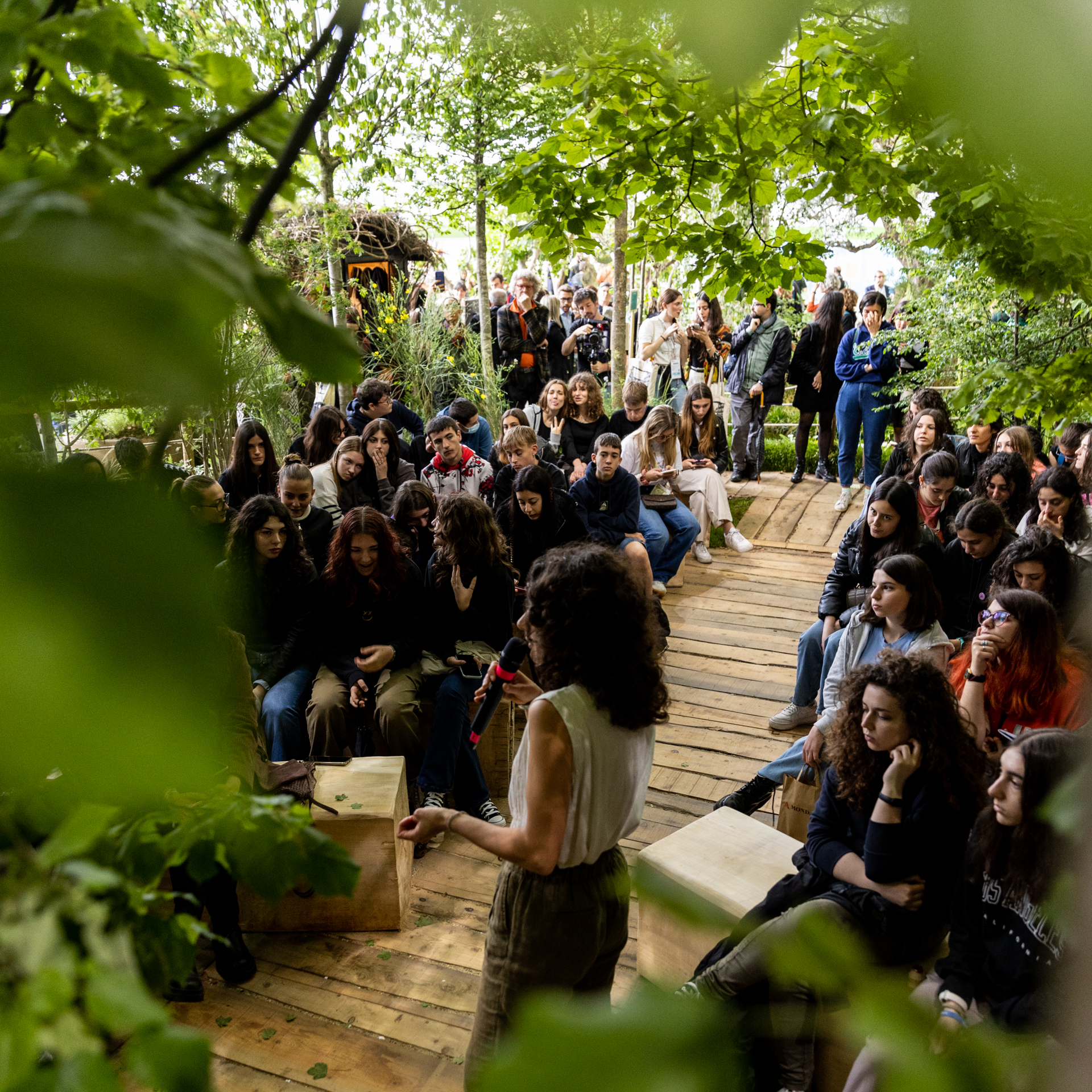
""
Let’s go back for a moment to the first point, the one related to the study of gastrointestinal problems. Have you made products for these issues?
Yes, of course, their production is our main activity. Many of our products, especially those for the gastrointestinal area, focus on microbiota health. The project line developed with NBFC, however, came about not so much to create new products, but rather to develop a platform to study characterization of the mechanism of action, of complex natural substances, in the context of use in therapy of complex natural products based on scientific evidence.
""
In the project line dedicated to agriculture, you have also focused on the study of carbon cycles. What does this work consist of?
The initial idea was to assess how agricultural practices can affect carbon sequestration. Let me explain: the term “carbon farming” refers to the management of carbon, its fluxes and emissions, within a farm with the goal of mitigating climate change. This topic is currently expanding, but current models still fail to fully capture the complexity of our production cycle. Today, carbon sequestration can be calculated well for woody plants, but not yet for herbaceous crops: in herbaceous crops, carbon uptake is not a stable stock. Therefore accurate counting is still a challenge.
""
So you decided to shift your focus?
Correct. The project has evolved into the more mature and measurable biodiversity strategy. We have systematized agricultural practices, monitoring, communication. It is a concrete strategy, based on activities that are already underway and setting goals for future improvement. Aspects we are able to monitor include, for example, soil quality, surface water analysis, detection and quantification of pollinating insects through specific sensors, satellite observations of crops, and much more. All these actions are now collected in one document.
""
In your projects you have also included a web series called “Ground Floor.” What is it about?
Piano Terra is a series promoted on the company’s social channels curated by our creative department that features our entomologist explaining the company’s agrobiodiversity in a discursive and accessible way. Through this tool, we talk both about Aboca’s focus on safeguarding biodiversity in its organic crops and the fact that biodiversity itself is essential to the health of the planet.
Protagonists of the interview

Jacopo
Orlando
- Agronomo ed economista agrario, coordinatore dell’Ufficio Impatto e Sostenibilità di Aboca
- Aboca
- jorlando@aboca.it Copia indirizzo email
Listen to other voices
Discover other voices and new perspectives: biodiversity told by those who study it, protect it and make it known


